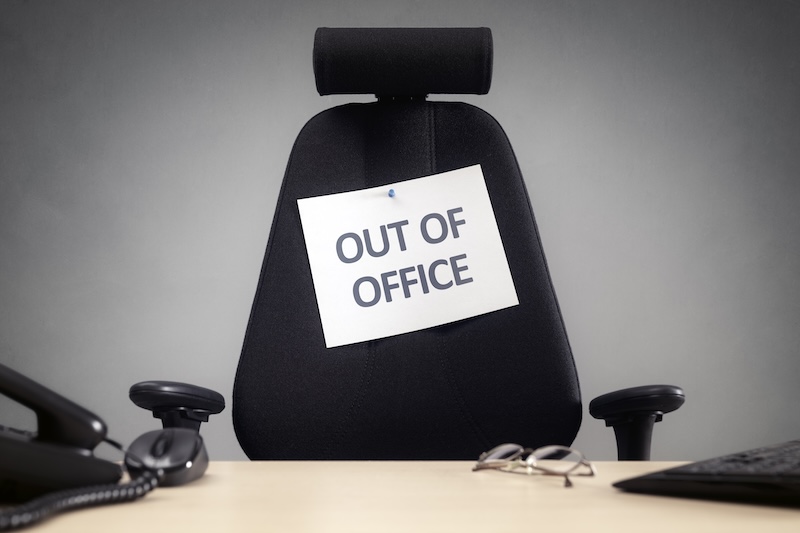Life happens, and sometimes that means taking an unplanned day off work. Sometimes, you may face a personal emergency or feel unwell. In these cases, it is okay to take a break from work. But what qualifies as a legitimate excuse, especially in a professional environment? The following unquestionable reasons to call out of work today, grounded in practical, ethical, and HR-approved standards. This list is not only for emergencies. It also includes common issues that many working professionals face at some time.
Speaking up in a responsible way helps create a healthy work culture. It prevents burnout and ensures productivity does not harm well-being. Employers increasingly recognize this, and some even encourage taking time off when needed to protect long-term performance. If you need good excuses to miss work, this guide gives you strong, HR-approved reasons.

1. You’re Seriously Sick
One of the most bulletproof excuses to get out of work is being genuinely sick. Calling out due to illness isn’t just about you—it’s also about protecting your coworkers. If you have a bad cold, the flu, or another contagious illness, stay home. This helps stop outbreaks at work and lets you get better faster. Many HR departments mandate staying home under such circumstances to support a healthy work environment.
Signs It’s Time to Stay Home:
- Fever over 100.4°F
- Persistent coughing or sore throat
- Gastrointestinal symptoms (nausea, vomiting, diarrhea)
- Headaches or body aches that impair concentration
Working through illness often reduces efficiency and increases the chances of spreading sickness. Instead, take a day to rest and return stronger. Among the best excuses to call out of work, this one is widely accepted and encouraged.
Pro Tip: Notify your supervisor early and provide a medical note if required. Having an honest discussion with your manager demonstrates accountability and professionalism.
2. Mental Health Day
A good excuse to miss work on short notice is taking care of your mental health. This is becoming more important. Anxiety, depression, burnout, or chronic stress can significantly impair your job performance and overall quality of life. Recognizing when to pause and prioritize your mental health is a sign of emotional intelligence—not weakness.
Acceptable Mental Health Reasons:
- Anxiety attacks
- Sleep deprivation or insomnia
- Emotional exhaustion or persistent sadness
- Stress-induced physical symptoms (headaches, fatigue)
If you need to take time off work for mental health, a simple message will do. Just say you are taking a personal or wellness day. Employers are increasingly supportive of these needs.
3. Family Emergency
When facing a family crisis, you don’t need to overthink your excuse to call out of work—this one’s a given. From a loved one being hospitalized to a sudden accident involving a family member, these scenarios are usually covered under most HR policies.
Examples of Family Emergencies:
- A spouse or child is injured or ill
- Elderly parent needs urgent care
- Sudden school closures or childcare unavailability
If you need a good reason to miss work, a real family emergency is one of the best.
4. Death in the Family
One of the best reasons to miss work is the death of a loved one. This is a personal matter. Most companies recognize it under bereavement leave policies. Taking time off allows for mourning, managing funeral arrangements, and spending time with family.
Typical Bereavement Leave Includes:
- 1 to 5 days off, depending on your company policy and the closeness of the relationship
- Additional unpaid leave or extended time off may be granted upon request
Even if you feel emotionally capable of working, grief can impair your focus and emotional well-being. Allowing yourself the time to mourn is both reasonable and necessary.
5. Medical Appointments You Can’t Reschedule
Scheduled health visits are good reasons to miss work. This is especially true for rare appointments with specialists or for tests. In such cases, calling out is acceptable and easy to document.
Examples Include:
- Diagnostic tests
- Post-surgery checkups
- Mental health therapy sessions
- Vaccinations or preventative screenings
Helpful Tip: Try to schedule routine checkups outside work hours. But if not possible, give 24–48 hours’ notice and offer to adjust your workload accordingly.
6. Home Emergency
A flooded basement or a broken heating system in winter are good reasons to miss work. They’re time-sensitive and affect your living situation.
Common Home-Related Call-Outs:
- Plumbing disasters like burst pipes
- Power outages or electrical problems
- Furnace or A/C failures during extreme weather
- Break-ins or home security issues
If you need to call out of work for these issues, let your manager know right away. Give updates if the emergency lasts more than one day.
7. Child’s Illness or Emergency
Parents have a built-in excuse to call off work when their child is unwell. Your presence may be very important. This could mean giving them medicine, taking them to the doctor, or just being there to comfort them.
Scenarios Include:
- School nurse calls you to pick up your child
- Child has a fever or infection
- Your child’s caregiver is unavailable last minute
For working parents, this is among the most common reasons to call out of work and is supported under most family leave clauses.
8. Jury Duty or Legal Obligations
Few things are more official than a legal summons. Jury duty, a court appearance, or legal mediation are good excuses to miss work.
Required Steps:
- Notify your employer immediately upon receiving your jury summons
- Submit copies of official notices if requested
- Return to work as soon as obligations are fulfilled, if possible
Most employers offer paid or unpaid leave for legal obligations. Ignoring these responsibilities could not only get you in legal trouble, but also signal irresponsibility at work.
9. Severe Weather Conditions
Weather-related problems aren’t just a minor inconvenience—they can be serious safety hazards. Snowstorms, hurricanes, or flooding are good excuses to call out of work, especially if they affect transportation or electricity.
Examples of Weather-Related Barriers:
- Flooded roads or downed power lines
- Closed highways or public transit delays
- School closures requiring you to stay home with children
Offering to work remotely shows initiative and makes your excuse to miss work even more reasonable.
10. Transportation Failures
A broken-down car or missed train might sound like a cliché, but they’re very real and unpredictable. They’re also among the most commonly used excuses to get out of work.
What to Do:
- Inform your employer as soon as it happens
- Provide documentation if necessary (e.g., tow receipt, mechanic report)
- Ask to work from home or adjust your hours if practical
It may not be the best excuse to call out of work, but it’s certainly valid when unexpected and clearly communicated.
11. Scheduled Interviews for a New Role
Looking for your next opportunity? Taking time for interviews is a legitimate personal commitment. Use PTO or a personal day rather than fabricating another excuse to call off work.
How to Do It Right:
- Use PTO or a personal day—don’t fabricate an illness
- Keep your explanation vague if needed, e.g., “personal obligation”
- Remain professional and don’t discuss job hunting with coworkers
If you’re actively seeking a new role, consider working with resume writing services to strengthen your application and land interviews faster.
12. Religious or Cultural Observances
Many workplaces respect cultural and religious diversity. Observing your holidays or cultural events is one of the most respectful and best reasons to miss work.
Examples:
- Eid, Diwali, Yom Kippur
- Cultural heritage celebrations or ceremonies
- Local or indigenous traditions recognized in your community
These are not only good excuses to call off work, but they’re also often protected under workplace policies or diversity initiatives.
Planning Your Absence: Best Practices
Even the best excuses to call out of work can backfire if you don’t communicate them properly. Avoid workplace conflict by following these best practices:
Best Practices:
- Inform your supervisor as early as possible
- Use proper channels (email, HR software, direct message)
- Provide documentation when appropriate
- Offer solutions (delegate tasks, reschedule meetings)
Whether your absence is planned or unplanned, how you handle it can impact your professional image.
Take Time When You Truly Need It
Your health, family responsibilities, and emotional well-being are all valid priorities. Don’t let guilt or fear prevent you from taking a day when you genuinely need it.
Knowing the right reasons to call out of work and communicating them appropriately protects your credibility and workplace reputation. From good excuses to miss work to bulletproof excuses to get out of work, choosing wisely builds long-term trust.
If you are making a big change, like switching jobs or industries, consider using expert resume writing services. They can help you take the next step with confidence.
Frequently Asked Questions
1. What are the most acceptable reasons to call out of work?
Illness, mental health, family emergencies, and bereavement are universally accepted and recognized under most HR policies.
2. Can I call out for mental health without disclosing details?
Yes, you can simply say you’re taking a personal or wellness day. Employers are increasingly supportive of mental health needs.
3. Is calling out for an interview dishonest?
Not if you use PTO or a personal day. It’s a valid reason when done professionally.
4. Will calling out frequently hurt my job?
Frequent unplanned absences can hurt your credibility. Always communicate clearly and provide valid reasons.
5. Can I be fired for calling out sick?
In at-will employment states, yes—but not if your absence is covered under sick leave, medical leave, or family leave policies.








